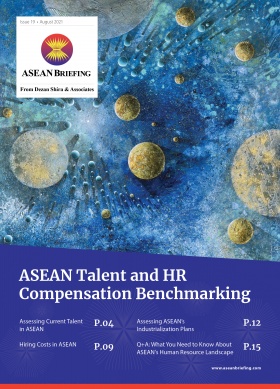Indonesia Ponders Issuing Five Year, Tax Free ‘Digital Nomad’ Visas
Indonesia’s government is debating whether to issue nomad visas to attract digital nomads to the country. Holders will be eligible to stay for five years, tax-free, but only if they can prove their income is derived from outside Indonesia. If approved, the nomad visa will be one of the longest in the world, with most countries only offering up to 90 days for digital nomads.
Indonesia is pondering the prospect of issuing ‘nomad visas’ to attract digital nomads to work from popular destinations in the country, such as the island of Bali.
The special nomad visa will allow its holders to stay in Indonesia for five years. They will also stay in the country tax-free, as long as their income is derived from outside of Indonesia. If approved, the length of stay offered by the nomad visa would be one of the longest in the world.
Indonesia’s Minister of Tourism, Sandiaga Uno, is aiming to improve the tourism industry’s impact on the local economy by luring higher-spending travelers, through ecological tourism, and sporting events, among others. The country successfully hosted its first MotoGP race, the first since 1977, in March this year, and its first-ever Formula E race in June of this year.ASEAN’s largest economy, Indonesia has lifted most restrictions for international tourists and the government expects up to 3.6 million foreign visitors this year. Before the pandemic, the country saw a gradual increase in foreign tourist arrivals from eight million in 2012 to 16 million in 2019, of which six million arrived in Bali.
The government wants the tourism industry to contribute up to eight percent of GDP from the current four percent. An ambitious target, meaning Indonesia would need to attract about 20 million visitors.
Indonesia’s five super-priority tourist destinations
In 2017, the Indonesian government had plans to develop ’10 new Balis’, to reduce the country’s overreliance on Bali to attract foreign tourists. This plan has now been narrowed down to ‘five super-priority tourist destinations’. These are:
- Mandalika – located on the island of Lombok and is the location of Indonesia’s first MotoGP since 1977.
- Borobudur – the world’s largest Buddhist temple that dates back to the 8th It was restored in the 1970s.
- Lake Toba – a large lake in North Sumatra province that lies in the caldera of a volcano.
- Labuan Bajo – a fishing town located on the western end of the island of Flores, and is known as the gateway to the home of the Komodo dragon.
- Likupang – located in North Sulawesi province and is popular for snorkeling and diving activities.
Infrastructure will be key
Developing the necessary infrastructure will be vital if the country wants to benefit from its diverse tourism environment, particularly in the five priority destinations. Some 70 percent of Indonesia consists of remote territory with little hard infrastructure and is home to small populations. Visitors to these destinations often have to rely on unreliable ferry services and expensive flights (which can be more expensive than international ones), as well as unreliable electricity supply and poor roads.
Mandalika and Labuan Bajo have small international airports, whereas Borobudur and Lake Toba are two and four hours away from the nearest airport, respectively. Bali, on the other hand, has Indonesia’s second-largest airport by airline count and is only a 40-minute drive from the nearest tourist hub. Moreover, the airport receives direct flights from Singapore, Beijing, and Sydney, among many other international cities.
However, infrastructure spending remains a focus for President Joko Widodo in his second term, with over US$400 billion of infrastructure projects planned until 2024. This includes building over 2,000km of highways, 25 new airports, and 35,000 MW of electricity plants.
Further Reading
- Comparing Mexico and Indonesia as Manufacturing Hubs for US Investors
- The RCEP to Encourage Investments in Indonesia’s Downstream Industries
- Australia’s Beef Exports to Indonesia Highlights Wider Potential for Halal Products
About Us
ASEAN Briefing is produced by Dezan Shira & Associates. The firm assists foreign investors throughout Asia and maintains offices throughout ASEAN, including in Singapore, Hanoi, Ho Chi Minh City, and Da Nang in Vietnam, Munich, and Essen in Germany, Boston, and Salt Lake City in the United States, Milan, Conegliano, and Udine in Italy, in addition to Jakarta, and Batam in Indonesia. We also have partner firms in Malaysia, Bangladesh, the Philippines, and Thailand as well as our practices in China and India. Please contact us at asia@dezshira.com or visit our website at www.dezshira.com.
- Previous Article Thailand, UK Form Joint Trade and Economic Committee
- Next Article Smart Cities Cooperation: Indonesia and Finland








